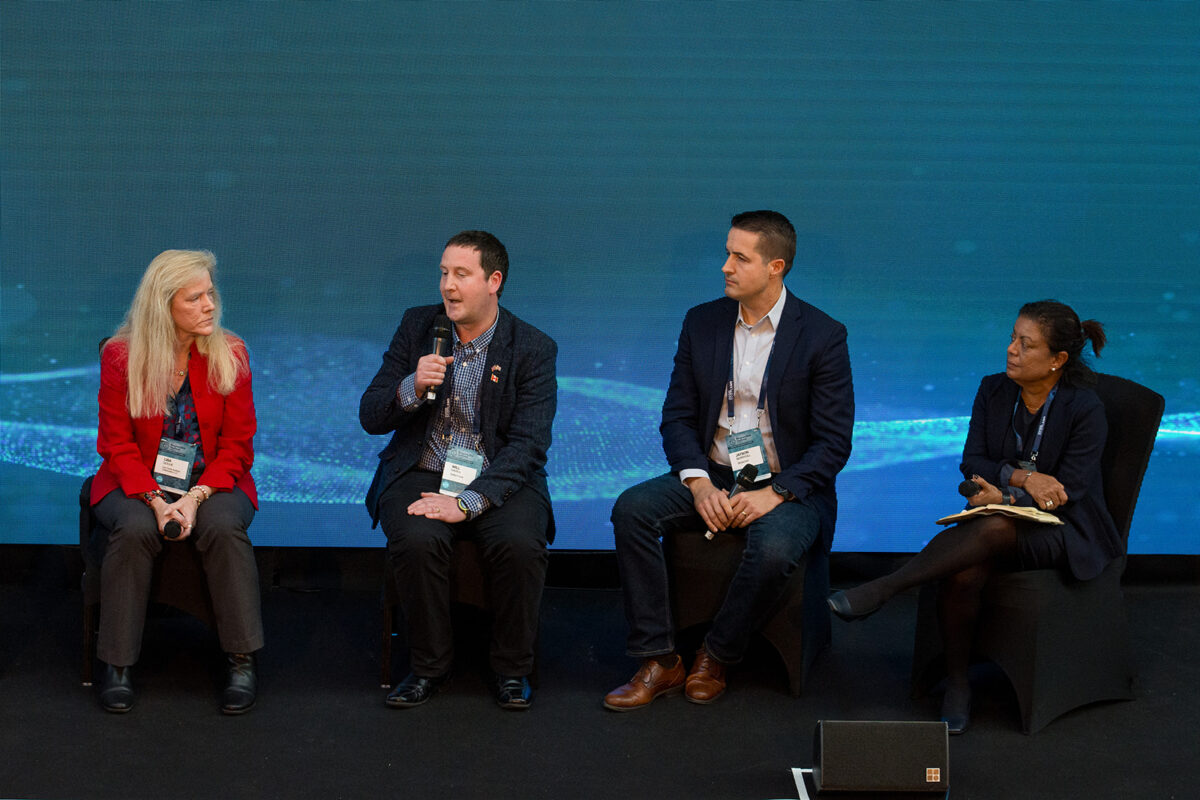In October, I had the opportunity to attend two key events on the sustainable seafood movement’s yearly calendar: the annual conference of the Conservation Alliance for Seafood Solutions (CASS) in Cancun, Mexico, and the Global Seafood Alliance (GSA) Responsible Seafood Summit in St. Andrews, Scotland.
Two meetings in two different countries, each focusing on seafood through a different lens. CASS is a well-established US-based NGO that has largely been closed to industry participation until recently. By contrast, the GSA conference has a huge industry focus, most noticeably on aquaculture, cutting edge innovations and technological developments to support the seafood sector, including fisheries, moving toward environmental and economic sustainability.
Yet at each meeting, the topics of discussion were remarkably similar, with attendees and participants focused on the importance of traceability and the need for more investment in verification of seafood sources, greater transparency, and due diligence.
Collaboration and knowledge sharing at CASS conference
The CASS meeting was a leap onto the international scene, with the first-ever Alliance Conference held outside of the US. Despite the distance and the threats of hurricane season, it was by far one of the most well-attended events for the Alliance, with over 100 participants representing 12 countries and 62 organizations. Half of the attendees were first-timers, and the meeting sessions were vibrant, with presentations and sessions on the core issues facing the movement. The enthusiasm radiating from the topic-specific sessions and the social events, including the Celebration of Women in Seafood, was noteworthy.
Mexico is a leader in global seafood production and has recently introduced a new strategic plan focusing on small-scale fisheries, among other issues. With the mix of NGO and local/national industry at the conference, it was a perfect setting for exchanges of knowledge and experience and discussions on collaboration.
Lively conversation and exchange at GSA Summit
The feeling was similar in St. Andrews. The GSA event is highly publicized and very expensive, but the industry participation at the national, local, and international levels in discussions on the future of AI, traceability, aquaculture production, and fishery improvement projects (FIPs) led to both information overload and excitement about the future of seafood and the urgency of international collaboration to ensure responsible seafood in the future.
At the Summit, I participated in one of two panels on FIPs, representing SFP alongside the Global Sustainable Seafood Initiative (GSSI), Wholechain, and Sofina Foods Europe. We had a lively and progressive conversation on the role of FIPs in long-term procurement of seafood.
A common message
Though the weather was considerably warmer in Cancun, for me, the technical, economic, and political messages at each meeting were the same. There is clear enthusiasm at all levels of the supply chain for evolution to the next level in the seafood sector, including a call for responsible management of resources, with long-term targets and technological developments to support verifiable measurements of sustainability and responsibility, while ensuring a viable future for communities that rely on the seafood industry.

(L-R) Cameron Moore, Julie Kuchepatov, and Becca Williams of SAGE, and Indrani Lutchman and Jen Levin of SFP, at the SAGE (Seafood and Gender Equality) Celebrating Women in Seafood event at the CASS conference.

(L-R) Lisa Goche, an independent contractor speaking on behalf of the Global Sustainable Seafood Initiative (GSSI); William Davies of Sofina Foods Europe; Jason Berryhill of Wholechain; and Indrani Lutchman of SFP speaking on the “How Can Fisheries Engaged in FIPs Fit Into Seafood Procurement Policies Long-Term?” panel at the Global Seafood Alliance’s 2024 Responsible Seafood Summit.

